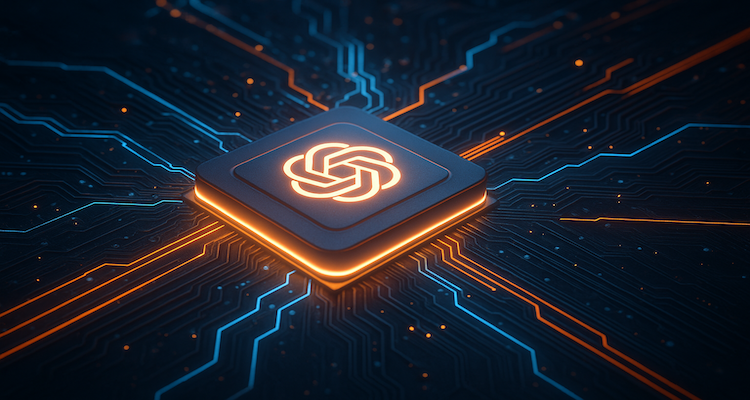OpenAI Prepares Custom AI Chips in 2026 With Broadcom

OpenAI will debut custom AI chips in 2026 with Broadcom, marking a bold shift from reliance on Nvidia and reshaping the future of AI hardware.
Introduction: The Next Leap for OpenAI
OpenAI has always been synonymous with breakthrough software from the viral success of ChatGPT to frontier research in generative AI. But now, the company is preparing to redefine its role in the tech industry. By 2026, OpenAI plans to roll out its first custom-built artificial intelligence chip, co-designed with U.S. semiconductor leader Broadcom.
This move signals more than just a product launch it represents a strategic pivot into the world of hardware, positioning OpenAI alongside other tech giants that have already gone down this path.
Context & Background: The Chip Bottleneck
For years, Nvidia has been the undisputed supplier of AI power, thanks to its advanced GPUs. These chips are the backbone of every major AI breakthrough, including OpenAI’s own models. However, as AI adoption skyrockets, Nvidia’s market dominance has created bottlenecks:
-
Scarcity of supply has slowed down large-scale projects.
-
High costs have made scaling AI models prohibitively expensive.
-
Overreliance on one supplier poses strategic risks.
Other major players have already recognized this. Google developed its Tensor Processing Units (TPUs), and Amazon rolled out Graviton and Trainium chips to power its cloud infrastructure. OpenAI, once entirely focused on software, is now following suit.
Main Developments: Partnership With Broadcom
The Financial Times reported that OpenAI is working hand-in-hand with Broadcom to design the upcoming chip. Broadcom, with its long-standing expertise in chip manufacturing and networking technologies, brings credibility and industrial know-how.
The chip is expected to ship in 2026, though technical details remain undisclosed. What is clear is the intent: OpenAI wants to reduce its reliance on Nvidia and gain control over the hardware running its AI.
Expert Insight: Analysts Weigh In
Industry experts view this as a watershed moment. “In the AI arms race, controlling the hardware stack is as important as software innovation,” said a semiconductor consultant. “If OpenAI succeeds, it won’t just be a consumer of chips it will become a hardware innovator.”
Investors, too, are closely watching Broadcom’s role in the deal. Broadcom has a proven record of delivering at scale, making it a strategic partner for OpenAI’s ambitious entry into chipmaking.
Public Sentiment: Excitement and Skepticism
Reactions across the tech community are mixed. Some see OpenAI’s venture into hardware as a bold and necessary evolution. Others caution that the semiconductor industry is fraught with risks: massive capital investment, long development timelines, and unpredictable supply chain issues.
Despite the skepticism, there is broad recognition that the move was inevitable given the growing hardware constraints in AI development.
Impact & Implications: Why This Matters
The announcement has implications for multiple stakeholders:
-
For the AI industry: OpenAI’s entry adds pressure on Nvidia and accelerates the trend of companies building custom silicon.
-
For businesses: Lower long-term costs could make AI services more affordable, fueling broader adoption.
-
For competition: Other AI labs may follow OpenAI’s lead, triggering a wave of custom chip development.
-
For innovation: Tailored chips will allow AI models to be trained faster and deployed more efficiently.
However, challenges remain. Chip design is costly, and scaling production requires partnerships with foundries like TSMC. Whether OpenAI can master these complexities remains to be seen.
Conclusion: Betting Big on the Future
OpenAI’s partnership with Broadcom to produce a custom AI chip by 2026 is more than a technical update it’s a strategic bet on the future of artificial intelligence. If successful, the move could reshape industry dynamics, loosen Nvidia’s grip on the AI hardware market, and accelerate the next generation of AI innovation.
As the countdown to 2026 begins, the industry is watching closely to see whether OpenAI can pull off one of the boldest transitions in its history: from software pioneer to hardware contender.
⚠️ (Disclaimer: This article is based on reporting from reliable outlets and expert commentary. Developments may change as the semiconductor project progresses.)
ALSO READ: The Forgotten AI Revolutions That Failed Before ChatGPT










